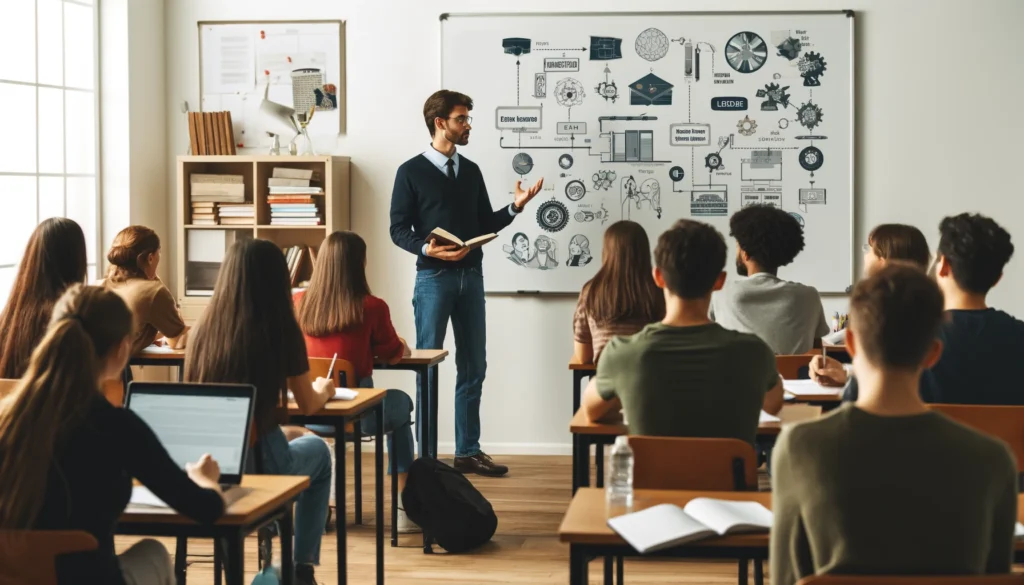Non-fiction books have a unique and transformative power in education. Understanding the importance of non-fiction in education can open up new worlds of knowledge, critical thinking, and personal growth. Let’s dive into the various ways non-fiction can shape our educational experiences.
The Role of Non-Fiction in Knowledge Acquisition

Expanding Your Knowledge Base
Non-fiction books are a treasure trove of factual information. They provide readers with accurate, well-researched insights into various topics, from history and science to self-help and personal finance. Unlike fiction, which primarily entertains and engages the imagination, non-fiction books focus on presenting real-world information and practical knowledge.
I remember picking up “Sapiens: A Brief History of Humankind” by Yuval Noah Harari. It was eye-opening. Harari’s ability to distill complex historical events into an engaging narrative not only enriched my understanding of human history but also sparked a curiosity to learn more about our past.
Real-World Examples
Books like “The Immortal Life of Henrietta Lacks” by Rebecca Skloot offer an in-depth look at the true story behind HeLa cells and their impact on medical research. Such books provide readers with concrete examples of how non-fiction can illuminate real-world issues and advancements, making them essential reading for anyone looking to expand their knowledge base.
Enhancing Critical Thinking and Analytical Skills
Challenging Your Mind
Non-fiction books often challenge readers to think critically and analyze the information presented. They encourage readers to question assumptions, evaluate evidence, and consider different perspectives. This process of critical thinking is crucial for personal and professional growth.
Reading Malcolm Gladwell’s “Outliers: The Story of Success” made me rethink the factors that contribute to success. Gladwell’s analysis of data and case studies pushed me to consider how much of success is due to innate talent versus external factors like opportunity and timing.
Developing Reasoning Skills
Books like “Thinking, Fast and Slow” by Daniel Kahneman delve into the intricacies of human decision-making. By understanding the cognitive processes behind our choices, readers can develop better reasoning skills and make more informed decisions in their daily lives.
Non-Fiction as a Tool for Personal Growth and Development

Self-Help and Motivation
Non-fiction isn’t just about gaining knowledge; it’s also a powerful tool for personal growth. Self-help and motivational books can inspire readers to improve their lives, set and achieve goals, and overcome challenges.
I found Brené Brown’s “Daring Greatly” to be a life-changing read. Her insights on vulnerability and courage resonated deeply with me, encouraging me to embrace vulnerability in my own life and relationships.
Professional Development
Books like “The 7 Habits of Highly Effective People” by Stephen R. Covey provide practical advice for professional growth. They offer strategies for improving productivity, leadership skills, and overall effectiveness, making them invaluable resources for career advancement.
Broadening Perspectives and Understanding Diverse Cultures
Promoting Cultural Awareness
Non-fiction books can also broaden our perspectives and promote cultural awareness. By reading memoirs, biographies, and historical accounts, we can gain a deeper understanding of different cultures, experiences, and viewpoints.
Reading “Becoming” by Michelle Obama gave me a profound appreciation for her journey and the challenges she faced. It offered a glimpse into her world, broadening my understanding of her experiences and the larger socio-political context in which she lived.
Fostering Empathy
Books like “Educated” by Tara Westover tell powerful stories of personal transformation and resilience. These narratives can foster empathy by allowing readers to step into someone else’s shoes and see the world from their perspective.
Practical Applications of Non-Fiction in Education

Academic Curricula
Non-fiction books are increasingly being integrated into academic curricula. They provide students with diverse perspectives and real-world examples that can enhance their understanding of various subjects.
As a college student, I remember reading “Guns, Germs, and Steel” by Jared Diamond for a history course. The book’s exploration of how environmental and geographical factors shaped civilizations added depth to our discussions and helped me connect historical events with broader themes.
Resources for Educators
Educators can use non-fiction books to create engaging lesson plans and classroom activities. Books like “The Power of Habit” by Charles Duhigg can be used to teach students about the science of habits and behavior change, making learning more interactive and applicable to everyday life.
Non-Fiction and Digital Learning
Accessibility Through Digital Platforms
The rise of e-books, audiobooks, and online resources has made non-fiction more accessible than ever. Digital platforms allow readers to explore a vast array of non-fiction titles from the comfort of their homes.
During the pandemic, I turned to audiobooks as a way to continue my reading habit while managing work and household responsibilities. Listening to Michelle Alexander’s “The New Jim Crow” during my daily walks was both enlightening and convenient.
Enhancing Learning with Technology
Digital tools like interactive e-books and educational apps can enhance the non-fiction reading experience. These tools often include multimedia elements, quizzes, and additional resources that help readers engage with the content more deeply.
Conclusion
Non-fiction books hold a unique and transformative power in education. They provide readers with invaluable knowledge, enhance critical thinking and analytical skills, and offer tools for personal and professional growth. By broadening perspectives and fostering empathy, non-fiction books contribute to a more inclusive and well-rounded worldview.
For book lovers between 18 and 55, integrating non-fiction into your reading list can unlock new opportunities for learning and personal development. Whether you’re exploring historical events, understanding human behavior, or seeking inspiration for personal growth, non-fiction books have something to offer everyone.
So, why not pick up a non-fiction book today and start your journey towards unlocking a wealth of knowledge and insights? Happy reading!
Additional Resources
Suggested Reading List
- “Sapiens: A Brief History of Humankind” by Yuval Noah Harari
- “The Immortal Life of Henrietta Lacks” by Rebecca Skloot
- “Outliers: The Story of Success” by Malcolm Gladwell
- “Thinking, Fast and Slow” by Daniel Kahneman
- “Daring Greatly” by Brené Brown
- “The 7 Habits of Highly Effective People” by Stephen R. Covey
- “Becoming” by Michelle Obama
- “Educated” by Tara Westover
- “Guns, Germs, and Steel” by Jared Diamond
- “The Power of Habit” by Charles Duhigg
- “The New Jim Crow” by Michelle Alexander
Online Platforms and Communities
- Goodreads: A community for book lovers to discover and discuss books.
- Audible: A platform for audiobooks, offering a wide range of non-fiction titles.
- Coursera and edX: Online learning platforms offering courses that incorporate non-fiction books.
Non-Fiction Book Clubs and Discussion Groups
- Join local or online non-fiction book clubs to share insights and engage in meaningful discussions with fellow readers. Websites like Meetup can help you find book clubs in your area.
